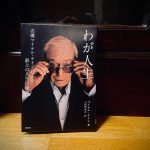Author Archives: HiroAOKI
コックニーのh-droppingとは?

 名探偵シャーロック・ホームズを現代のイギリスに蘇らせたBBCのテレビドラマ『Sherlock』を観ながら、ETC英会話のトニー先生のレッスンを受けています。
名探偵シャーロック・ホームズを現代のイギリスに蘇らせたBBCのテレビドラマ『Sherlock』を観ながら、ETC英会話のトニー先生のレッスンを受けています。
今日はこんなダイアログから。
CABBIE: Taxi for Sherlock Holmes.
SHERLOCK: I didn’t order a taxi.
CABBIE: Doesn’t mean you don’t need one.
SHERLOCK: You’re the cabbie. The one who stopped outside Northumberland Street. It was you. Not your passenger.
CABBIE: See? No one ever thinks about the cabbie. It’s like you’re invisible. Just the back of an ‘ead. Proper advantage for a serial killer.
SHERLOCK: Is this a confession?
CABBIE: Oh, yeah. I’ll tell you what else… If you call the coppers now, I won’t run. I’ll sit quiet, and they can take me down, I promise.
コックニーの特徴の一つ、hの発音が抜け落ちるh-droppingについて説明をしていただきました。
Because they know you are a foreigner, they won’t change for you to understand.
They will speak exactly like they speak.
That’s not English, no.
“Cor, stone the crows mate. What are the bleeding hell.”
They say things like, so many expressions on top of their strange way of speaking.
So they never say, never really speaking the correct.
It’s very difficult, yeah, yeah, very difficult.
OK, you mentioned about “H-dropping”.
OK, “H” is, basically it all comes from a laziness originally, I think.
But it turns into the language.
Then and after through generations, it becomes not a laziness.
It just becomes an accent the way people speak, like I am from Huddersfield.
But nobody in Huddersfield pronounce their “H”s.
It almost like, they are very poor, we make a joke, they are very poor of the north England, because they can not buy “H”s, that is why they can not use, because they can not afford to buy them.
So “I come from Huddersfield”.
So it will be “Uddersfield”.
And “house”, “ouse”, “head”, “ead”.
Basically you just throw away the “H”s.
Like I said, now they emphasized it.
It is not laziness.
Because now they actually put even a big emphasis on, “I am going to the Ouse”.
“I am going to my Ouse”.
They could say “house”.
It is not that difficult, but now they deliberately don’t put it on purpose.
It becomes uhm, it just becomes their way of talking.
Now they exaggerate their way of talk, yes.
“Olmes”, yes, “Olmes”, “Sherlock Olmes”, no “H”, “Sherlock Olmes”.
cor
[驚きを表わして] うわっ! おや! あら!
Stone the crows!
[驚き・不信を表わして] へえ, おや.
laziness
なまけ
generation
同世代の人々
■出演
・ETCマンツーマン英会話トニー先生(荻窪/富士見ヶ丘)
■聞き手
・青樹洋文
◆使用楽曲 (BGM)
“Movie Star * (The Making Of X) by Loveshadow
◆ポッドキャストのダウンロードや購読は、iTunes – Podcast – 「RadioETC」からも可能です。
“I’m desperate”の意味は

 名探偵シャーロック・ホームズを現代のイギリスに蘇らせたBBCのテレビドラマ『Sherlock』を観ながら、ETC英会話のトニー先生のレッスンを受けています。
名探偵シャーロック・ホームズを現代のイギリスに蘇らせたBBCのテレビドラマ『Sherlock』を観ながら、ETC英会話のトニー先生のレッスンを受けています。
今日はこんなダイアログから。
JOHN: So, why do you put up with him?
DI LESTRADE: Because I’m desperate, that’s why. And because Sherlock Holmes is a great man, and I think one day, if we’re very, very lucky, he might even be a good one.
さて、“I’m desperate”とはどのような意味なのでしょうか。
The direct translation for “desperate” means, I am desperate, like if I have pain in my tooth.
And I go knocking on a dentist door, “I am desperate, please. See to me know. Please. help me know now. I can’t wait till the next week. No, now. I am desperate.”
That is “desperate”.
But we now use that for situations too.
You are, especially when you come to ask somebody to do something that you wouldn’t usually ask, like maybe the last person you would ask.
So you would never go to them.
So you say, they would say to you, “why are you asking me, because I know that you don’t like me or I am the last person you would ask.”
And then your expression is “oh, I am desperate”.
Q: What can I say instead of “I am desperate”.
OK, “you are my last hope for solution” or “you are my last choice”, “you are my only choice”.
So the correct thing is not it.
“You are my only choice” or “you are my last choice” or “I have no choice. You are my only solution”.
desperate
捨てばちの、 やけくそになって、絶望的な.
■出演
・ETCマンツーマン英会話トニー先生(荻窪/富士見ヶ丘)
■聞き手
・青樹洋文
◆使用楽曲 (BGM)
“Movie Star * (The Making Of X) by Loveshadow
◆ポッドキャストのダウンロードや購読は、iTunes – Podcast – 「RadioETC」からも可能です。
no worries とは – Stand-up Comedyでマンツーマン英会話(6)

米加の人気コメディアン、DeAnne Smithさんのオーストラリア・メルボルンでのステージです。オーストラリアの独特の表現”no worries“.
Thank you!
No worries!
のように、「You are welcome」(どういたしまして)の意味に使われるます。
オーストラリアのカフェで彼女が水を一杯頼んだところ、ウェーターは“no worries”と答えました。この表現になれない彼女は、「心配しないでって一体どういうこと」と、かえっていろいろな心配をし始めます。
I have been coming to Australia for a little while now.
And I have a song about one of my experiences.
So here we go.
Here is a little story about an Australian cafe.
I ordered a glass of water, but instead of just saying ok,
the waiter said “no worries, muam”, which I guess was polite.
But to my north american ears, it just didn’t sound quite right.
“I mean it is just a glass of water.
I am not, I am not worried about it, hrm, really.
I think , maybe, if you just bring me the water and, and, but you don’t need to like project onto me that I have mental process about the glass of water.
Because I am not, I am not, concerned, I don’t even think about the concept of worry.
But you’ve been introduced it now, haven’t you.
So now I start to think.”
What would I have to worry about?
And then I started to think of all the things that could go wrong,as he fetched my drink
What if he spits in the water.
What if it is full of disease.
Unless he’s planning to do something weird.
Why would he say “no worries”.
What if the glass is cracked.
What if the glass is half empty.
What if l get philosophical
And I’m forced to confront my innate negativity.
ここ最近ちょくちょくオーストラリアに来るようになりました。
これは、私の経験に基づく歌。
さあ、始めますね。
これは、オーストラリアのカフェでのちょっとしたお話
コップ一杯の水を注文したら、「OK」と言う代わりに
ウエイターは、「かしこまりました(ご心配なく)」と言ったの、丁寧な受け答えだということはわかるけど
だけど、北米人の私の耳には、本来の意味には聞こえなかった
ただコップ一杯の水よ。
心配なんてしないわ。本当よ。
あなたはただ水を持ってくるだけだったら、コップ一杯の水に対する私の思考過程を慮る必要なんてないわ。
だって、私心配なんかしていない。心配なんて概念を思ってみたこともない。
だけど、あなたが「ご心配なく」なんて言うから、でしょ。
だから、私は考え始めたわ。
私は何を心配すべきかって。
彼が水を運んでくるときに、どんな間違いが起こりうるか、あらゆるケースについて考え始めたの。
もし、彼が水の中につばを吐いたとしたら。
もし、それが病原菌で一杯だったら。
彼が何か変なことを計画していなかったとしたら、
なぜ彼は「ご心配なく」と言うのだろうか
もし、コップがひび割れていたら、
もし、コップに半分しか水が入っていなかったら
もし、私が冷静だったら
そして、私は、生まれつき悲観的な考えの自分自身に向き合うはめになってしまった。
こんなふうに、彼女の心配は次から次へと沸いてくるのでした。
是非、続きを訳してみてください。
(※)関連リンク
DeAnne Smith
I less than 3 you とは – Stand-up Comedyでマンツーマン英会話(5)

日本でも大人気、DeAnne Smithさんの『Nerdy Love Song』(コンピューターオタクのラブソング )。
日本での紹介され方を見ていると、子猫を絶賛する声が殆どで、ラブソングの内容に関しては全く触れられていないようです。
かわいい子猫のネコパンチになごみますが、歌はオタクっぽい言葉を駆使したかなりきわどい愛の歌。ひとまず、当たり障りのない最初の部分をご紹介します。
 ♪ I wanna be your abacus baby
♪ I wanna be your abacus baby
♪ you can count on me
私はあなたのアバカス・ベイビーになりたい
だから、私のこと信じていいわよ
”abacus baby”は、ここでは、幼児用のそろばん玩具のこと。
”you can count on me”は、「私のことを信じても大丈夫」、「私を頼ってくれてもいいんです」。
また、”count”が、「数を数える」という意味で、“abacus baby”(幼児用そろばん)にもかかっています。
ですから、「私はあなたの幼児そろばんになりたい。だから、私のこと信じていいわよ。(数えてもいいわよ)」という駄洒落になっているようです。
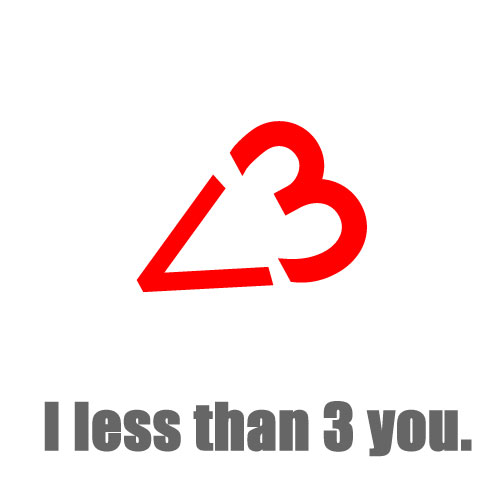
<3 :less than three
♪and I won’t say that I love you or I heart you,
♪but I will say less than 3, I less than 3 you
愛してる」とも「大好き」とも言わないわ
でも、「私は三以下」っていうの
I love you. が I [ハートマークの絵文字] you.を経て、I heart you. に。
I less than 3 you は、less than 3 を数式で書くと、<3 。これを横から見るとハートマークに見えることから、I love you.となるわけです。
I wanna be your abacus baby
you can count on me
and I won’t say that I love you or I heart you,
but I will say less than 3, I less than 3 you
Your molecules must be moving really quickly
‘cause girl, you’re hot.
Are you igneous, metamorphic or sedimentary?
All I know is, baby, you rock.
if god existed, I’d thank him for you
but I’m rational and i read (a lot of) Sam Harris
you’re beautiful like the font of Garamond
but I wanna see you sans serif.
(take your pants off)
I wanna be your abacus baby
you can count on me
I observe your quarks oscillating,
and I’m formulating a g-string theory
I’m an archaeologist and I’m gonna compute your age,
yeah, I’m wanna absolutely date you
you make me feel like a male giraffe
I wanna nudge your rump, make you urinate, and mate you (that’s what they do)
the value of my love for you
cannot be expressed exactly
it’s more irrational than pi
hey “Fuck” is a legitimate word in Scrabble, just FYI
I wanna be your abacus baby
you can count on me
you can suck me into the supermassive black hole
at the center of your galaxy (I’m talking vagina)
I may not be the biggest or strongest
but my knowledge of grammar shines
I know how to use the words further and farther correctly
every freaking time
farther indicates physical distance
and further a depth or degree
example: the moon is getting farther from the earth
about 4 centimeters annually (true fact)
example: you just keep getting further into my heart
wait: you just keep getting farther into my heart
no, wait: you just keep getting further into my heart
hang on: you just keep getting farther into my heart
I wanna be your abacus baby
you can count on me
if the situation is ambiguous
further and farther can be used interchangably (that’s a rule! I knew that all along)
I wanna be your abacus baby
you can count on me
and I won’t say that I love you or I heart you
but I will say, I less than 3 you
(please take off your pants)
(※)関連リンク
DeAnne Smith
punchline とは – Stand-up Comedyでマンツーマン英会話(4)
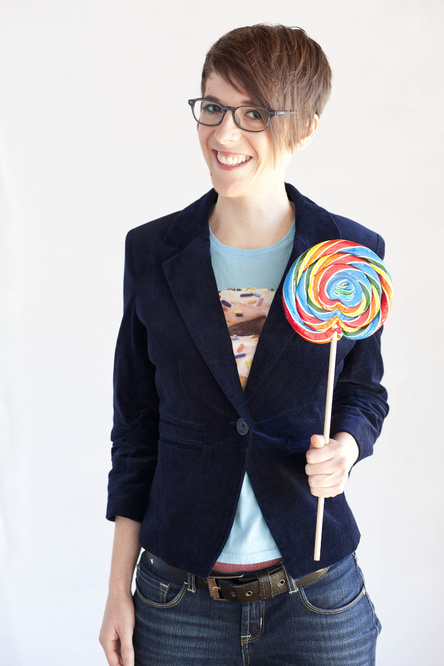

DeAnne Smith
笑い話には笑い所、もしくは最後の結びである「落ち」があります。この「落ち」は英語では、punch line と言います。
笑い話だと思って聞いていたのに、どこで笑ったらよいのか分からない時に「落ちは何?」などと聞いたりしますが、英語でも次のように言います。
What’s the punchline?
また、「その冗談には落ちが無い(笑えない)」と言う時には
That joke has no punchline.
などと言います。(解説:ETC英会話 パーカー先生(池袋))
さて、人気コメディアンのDeAnne Smithさんのトークのpunchline(落ち)は何でしょうか。
It is important to have fun in life.
You never know what is going to happen, right.
I have a friend who died, water skiing suddenly.
Everybody said he died doing what he loved, he died doing what he loved.
And I didn’t know that well.
Because I didn’t realize that he loved, getting hit by a boat. Wao.
He died doing what he loved being all wrapped up in a propeller.
That Jim and his crazy hobbies.
I shouldn’t be allowed to say that, every once in a while, someone really does die doing exactly what they love.
But it’s in those moments, we never put it into the context, we’re never like,,, well,,,
“He died doing what he loved. heroin.”
人生を楽しむことは大切。
これから何が起こるかなって決して分からない。でしょ?
私の友人が、水上スキーをやっている最中に事故で突然亡くなってしまったんです。
皆こう言ったんです。「彼は大好きなことをやって死んだ」って。
私、それが良くわからないんです。
だって、彼がボートに引かれるのが大好きだったなんて気がつかなかったもの。
プロペラに巻き込まれるのが大好きで、それで死んだなんて。。。
「あら、ジムったら。変な事が大好きなんだから。かわいいわね。」
そんなこと言うなんて許されることじゃないけど、でもたまに、本当に好きなことをやって死ぬ人もいるんですね。
そんな時は、それが本当はどういう意味かを理解しようとはしません。
「彼は好きなことをやりながら死ねたんだ。ヘロイン。。。」
まず、That Jim and his crazy hobbies.と言う表現について解説します。
たとえば、Davidは5歳、まだまだ小さな男の子、サッカーに大好きです。ある日、ボールを蹴ろうとしたところ、見事に空振りをして、しりもちをついてしまいました。その姿はかわいらしく、どこか滑稽でもあります。そんなときに、その子への愛おしさをもこめてこういいます。
Oh, that David and his soccer.
さて、上の話に出てくるジム、彼は水上スキーをやっている最中に、ボートのプロペラに巻き込まれてなくなってしまったのこと。そのような悲惨な事故、さらには本人が亡くなってしまっている場合には、
That Jim and his crazy hobbies.
などという表現は使いません。使えるのは、もっと軽い事故で、笑えて、且つかわいらしい出来事。その不釣合いな表現に会場は大爆笑しています。
さて、この話の落ちは「彼は本当に好きなことをやって死んだ。死因は薬物」というもの。おそらく、この話を日本でしたら、ここまでの笑いおきなかったでしょう。会場内でくすくすと笑いが起こる程度で、大半の聴衆は引いてしまうかもしれません。笑っていいものかどうか、戸惑ってしまう方も多いのではないでしょうか。米国と日本とでは、薬物というものに対する距離感がかなり違うからかもしれません。
逆に日本では笑えても、欧米では笑えないジョークも多くあるのでしょう。さらに、国や文化を超えて、笑える事柄もあるに違いません。そんな風に笑いの境界線を探ってゆくことも、楽しい会話を生み出すために役に立ちそうです。
(※)参照リンク
DeAnne Smith
bonding momentとは – Stand-up Comedyでマンツーマン英会話(3)


DeAnne Smith
日本ではマツコデラックスさんやはるな愛さんのように、恋愛対象が同姓であるタレントさんがたくさんテレビのバラエティー番組で活躍するようになりました。
人気コメディアンのDeAnne Smithさんも同様、彼女の恋愛対象は女性とのこと。そういう彼女に対して両親がいかに理解があるか、それ以上に理解がありすぎて少々居心地が悪い、という話題で会場を沸かせます。
My parents, my parents are too cool with me being gay.
Oh, and that was me, coming out to you.
[laughter]
Most of you are on board.
I mean come on. Ah…
[laughter]
Some of you guys have questions or you’re a little shocked like, “oh, that little boy is a lesbian?”
[laughter]
That is the applause that hurts my feelings.
[laughter]
My mom, my mum is too cool, it’s uncomfortable.
Last time when I went home, she asked me if I was dating my friend Jess.
And I said “no”, because I’m not.
And them my mum answered, “Oh De, I can’t keep your friends straight”.
And she giggled for half an hour.
[laughter]
My dad’s no better.
He was in the living room watching TV and he calls me in like this.
“Hey De, Dallas Cowboy cheerleader tryouts are on
Come on. Come on.
[laughter]
Gross.
But I went in,,, I went in.
[laughter]
So my dad and I were watching TV, kind of objectifying to find women together.
Um, my mum tried to come into the room.
And my dad said to her,
“Carrie, get out here. we’re having a father-lesbian bonding moment.
[laughter]
両親はゲイであることに理解がありすぎて。
あら、それ私のことです。告白するわ。
皆さんもご一緒に、どうですか?
中には疑問に思う方やちょっと驚いた方もいますよね。
「えっ、あの小さな男の子がレズビアンだって?」
[笑い]
その拍手喝采は私の心を傷つけます。
[笑い]
ママは理解がありすぎて、気持ちがわるいくらい。
この間実家に帰った時、私が友達のジェスとデートしたかって母が聞くんです。
「してない」って言ったの、だってしてないから。
そしたら彼女はこう言ったわ。
「また、ディー、私はあなたの友達にまっすぐの道を行かせることはできないわ」
その後、彼女は30分間くすくす笑っていました。
[笑い]
パパはもっと酷いの。
居間でテレビを見ていて、私をこう呼ぶの。
「おいディー、ダラス・カーボーイのチアリーダーのオーディションやってるぞ。来て、見ろ。」
[笑い]
いやだ~。
でも、結局見たの。
[笑い]
そして、パパと私は一緒に女性達を物色でもするかのように見ていたの。
そこにママが部屋に入ってこようとしたら、パパはこう言ったわ。
「キャリー、ここに入ってくるな。今、父とレズビアン(である娘)が絆を深める大切なときを過ごしているんだから」
[笑い]
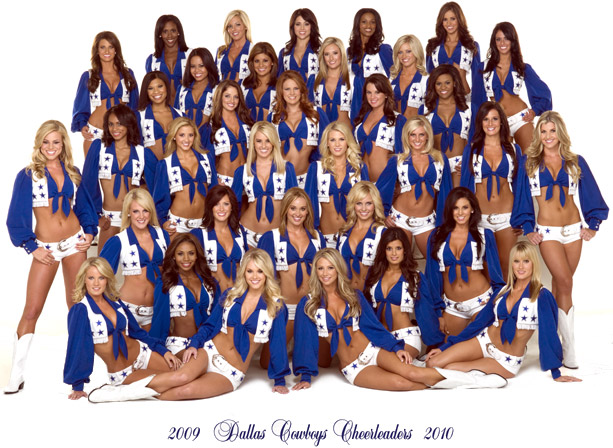
Dallas Cowboy cheerleader
ポイントはbonding moment。
たとえば、父と息子のbonding momentで、最もよく言われるのは釣りやキャンプ。父と息子が自然の中で、共に過ごし、息子は父の男らしさ、たくましさにふれ、親子の絆を寄り深める、思い出となる時間を過ごすこと。それを、bonding momentと言います。
母と娘の間では、たとえば一緒に台所で料理を作ることなどが、bonding momentの1つと言えるかも知れません。
さて、レズビアンである娘にとても理解のある、いえ、理解のありすぎる彼女の父は、お互いの絆を深めるために何をしたでしょう。答えは、テレビでDallas Cowboy cheerleader tryouts (ダラスカーボーイのチアリーダーのオーディション)を一緒に観ること。
「どの子が好き?」
「お父さんはあの子だなあ。」
「うわっ、好みが一緒。やっぱり血が繋がっているんだね」
みたいな父と子の会話を交わしたのでしょうか?
会場は大爆笑です。
Old Spiceとは – Stand-up Comedyでマンツーマン英会話(2)


DeAnne Smith
人気コメディアンのDeAnne Smithさんのトークで、「英語で笑う」ための挑戦を一歩ずつ進めて行きましょう。アドバイスをくれるのはETC英会話のパーカー先生(池袋)です。
夜型の彼女が、朝寝をしながら見ている夢の話をしています。夢だから奇妙な出来事の連続。ここでも会場は大爆笑。何がそんなに可笑しいのでしょうか。
I’ll own real estate in my dreams, but for the next 9 minutes,
I am living in a pancake castle with my mom.
And a guy from Old Spice commercial, who’s also kind of my mum.
It’s weird, but I like it.
夢の中では、マイホームを所有することになって、
でも9分後には、ママとパンケーキのお城に住んでいたの。
そして、オールドスパイスのCMに男性が出てきて、それが私のママでもあって。
きもい、でも好き。
ポイントはa guy from Old Spice commercial(オールド・スパイスの広告に出てくる男性)。”old spice”を「古い香辛料」と訳してしまうと、ここでは笑えません。Old Spiceは米国などでとても有名な男性用デオドラント化粧品のブランド名です。パーカー先生も愛用していました。(写真下)どんなCMなのでしょうか。動画でチェックしてみましょう。
 筋肉質で二枚目の男性が、気持ちよさそうな表情でシャワーを浴びるCM。日本にも似たようなCMがありますね。でも、このCM、よくよく見ると服を着たまま石鹸で身体を洗ったりして、どことなく滑稽です。
筋肉質で二枚目の男性が、気持ちよさそうな表情でシャワーを浴びるCM。日本にも似たようなCMがありますね。でも、このCM、よくよく見ると服を着たまま石鹸で身体を洗ったりして、どことなく滑稽です。
会場の笑いは、このCMを思い出して笑っているのかもしれません。
でも、Old Spiceの広告にでてくる男性が、自分の母親というのは何故なのでしょうか。笑いは彼女の告白へと続きます。
(※)参照リンク
DeAnne Smith
DeAnne Smith – Stand-up Comedyでマンツーマン英会話(1)


DeAnne Smith
こんな経験はありませんか。
外国人のお友達のホーム・パーティに誘われました。おしゃべりが盛り上がって皆が爆笑をしています。ところが、何がおかしいのかが全く分かりません。自分ひとりが無表情なのもなんとなく気まずくて、可笑しいふりをして笑ってみたりします。パーティが盛り上がれば、盛り上がるほどこんな状態が続いて、楽しいはずのパーティが、ちょっとストレスに。
「みんなと同じように笑いたい」
でも、 「笑い」は、英語学習者にとって最も難しいテーマのひとつのようです。
そこで、海外のスタンドアップ・コメディーを使って勉強しようと思いましたが、これがなかなか手強そう。その理由は大きく分けると次の3つ。
1)コメディは、会話中心の口語英語。慣用句にことわざ、スラングなども満載で、英語学習者にとってはかなりの上級レベル。
2)笑いのネタになっている人やモノ、事件や出来事、流行やテレビ番組、テレビ・コマーシャル等も知らなければ、笑えない。
3)価値観や考え方、文化や歴史、タブー視していること、許容していることなどが異なり、笑えない。
でも、「笑い」は人間が健康に生きて行くための特効薬。皆が楽しそうに笑っているわけを知りたい。そして、自分も一緒に笑いたい。こんな欲求を抑えることができません。そこで、ETCマンツーマン英会話のパーカー先生に指導していただいて、米加のコメディアン、DeAnne Smithさんの話を題材に、スタンドアップコメディに挑戦してみましょう。
Craig Ferguson:
My next guest is a very funny comedian.
She is at the Comedy Nest Montreal, Quebec, May 16 through 18.
Please welcome DeAnne Smith.
DeAnne Smith:
Oh.
Hey, guys.Oh.
I hope you guys like me.
Um, that is not a joke.
[laughter]
Late night television、、、
This is really cool.
I am not a morning person.
Morning people say stuff like, “the early bird gets the worm”.
Oh my God. OK. Maybe.
Maybe the early bird gets the worm.
But so does the midnight tequila drinker.
[laughter]
There are other ways to get the worms if you like worms.
Also, why do we need worms?
It is weird.
クレイグ・ファーガソン:
次のゲストはとても可笑しいコメディアン
彼女は、5月16日から18日、コメディ・ネスト・モントリオール・ケベックに出演。
ディアン・スミスの登場です。
ディアン・スミス:
どうも、みなさん。あら。
みんな私のことが好きだといいんだけど。
えっと、、、これは、冗談じゃないのよ。
[笑い]
深夜のテレビ番組。
ほんとにいいわね。
私は朝型の人間ではありません。
朝型の人たちはこんなことを言いますよね。「早起きの鳥は虫を捕まえる(早起きは三文の徳)」
あらま、大変。いいわよ。多分そうね。
多分、早起きの鳥は虫を捕まえるわ。
でも、深夜のテキーラ飲みもそうよ。
[笑い]
もし虫が好きなら、他にに捕まえる方法はあるわ。
それに、なんで私たちに虫が必要なの?
気持ちわるーい。
[笑い]
ポイントはこの部分。
Maybe the early bird gets the worm.
But so does the midnight tequila drinker.
“Maybe the early bird gets the worm.”は、「早起きの鳥は虫を捕まえる」。早起きの効用を表現したことわざで、日本語の「早起きは三文の徳」と同じ意味です。
“so does”は「それと同じ事をする」。つまり、 “the midnight tequila drinker”(真夜中のテキーラ飲み)も虫を捕まえるとういうこと。でも、そうれはどういう意味なのでしょう。
そうです、テキーラのボトルの中に入っている幼虫のことです。
テキーラのボトルを飲み干すと、最後にはこの幼虫もグラスに注ぐことになります。

つまり、朝型の人たちが好んで使うことわざ、「早起きの鳥は虫を捕まえる」を、そのまま字面で捉えて、「虫を捕まえる」のなら、深夜までテキーラを飲めば、ボトルの中に入っている幼虫を捕まえることができるわ。そもそも、人間の私たちになぜ幼虫がいるの?キモイでしょ。」ということ。ここで会場は大爆笑。
でも、テキーラのボトルを空けたことがある人なら、一度は経験したでしょう。翌朝の二日酔いによる激しい頭痛と吐き気。そして、あんなに飲むんじゃなかったとういう後悔の念。
やっぱり、虫を捕まえるなら、「テキーラ」じゃなくて「早起き」のほうがよいのかもしれません。
「虫ネタ」。まずは会場の「つかみはOK」、といったところでしょうか。笑いのネタは続きます。
(※)参照リンク
DeAnne Smith
Mezcal
“filling in”の意味は?

 名探偵シャーロック・ホームズを現代のイギリスに蘇らせたBBCのテレビドラマ『Sherlock』を観ながら、ETC英会話のトニー先生のレッスンを受けています。
名探偵シャーロック・ホームズを現代のイギリスに蘇らせたBBCのテレビドラマ『Sherlock』を観ながら、ETC英会話のトニー先生のレッスンを受けています。
今日はこんなダイアログから。
JOHN: Have you talked to the police?
SHERLOCK: Four people are dead, there isn’t time to talk to the police.
JOHN: So why are you talking to me?
SHERLOCK: Mrs Hudson took my skull.
JOHN: So I’m basically filling in for your skull?
SHERLOCK: Relax, you’re doing fine.
さて、“filling in”とはどのような意味なのでしょうか。
Sherlock Holmes has a skull, which he likes to talk to.
That comes from Shakespeare, you know that ”Alas, poor Yorick!”.
It’s very famous Hamlet, I think it is, where is talking to his brother skull.
It is a kind of play on that.
So he has a skull, which he likes to talk to.
So John, “why you are talking to me”.
And his housekeeper took away his skull.
So he couldn’t find his skull to talk to, which is why he was talking to John.
So that’s is of course.
So John says “filling in” in this situation, we use,,,
“Filling in”, OK, here we go again, the direct translation of “filling in” would be to repair something, You put a little, there is a hole in a wall.
So you get a little bit cement you fill in the hole.
But now we use it a lot for replacing somebody, in the place of.
So If I didn’t come to work today.
You would be filling in for me, my position.
I am filling in.
So John didn’t come to work today.
I am filling in for him.
So the skull wasn’t here.
So John was taking the place of the skull.
He was filling in for the skull.
So you always put filling in for whatever is missing.
skull
頭蓋骨,どくろ
Alas, poor Yorick!
ああ, かわいそうなヨリック (『ハムレット』シェークスピア作 より)
(*)参考リンク
Alas, poor Yorick! – Hamlet by William Shakespeare
「哀れ、ヨリック」 – シェイクスピア『ハムレット』
■出演
・ETCマンツーマン英会話トニー先生(荻窪/富士見ヶ丘)
■聞き手
・青樹洋文
◆使用楽曲 (BGM)
“Movie Star * (The Making Of X) by Loveshadow
◆ポッドキャストのダウンロードや購読は、iTunes – Podcast – 「RadioETC」からも可能です。
hung upの意味は?

 名探偵シャーロック・ホームズを現代のイギリスに蘇らせたBBCのテレビドラマ『Sherlock』を観ながら、ETC英会話のトニー先生のレッスンを受けています。
名探偵シャーロック・ホームズを現代のイギリスに蘇らせたBBCのテレビドラマ『Sherlock』を観ながら、ETC英会話のトニー先生のレッスンを受けています。
前回のレッスンで、hang onについて学びました。では、~be hung up~ とはどのような意味なのでしょうか?
“Hung up”, that is a slang for, something you put a coat, you get a coat and hang it up, now the coat is hung up on a coat hang up, on a coat stand.
So that means the coat can not get off the coat stand.
It is hung up on the coat stand.
So it would be quite a job for it to get off by itself or take it off.
You will require movement effort.
Direct, you could, “oh, where is my coat? oh, it is hung up over there.”
That’s quite rare, just like the previous thing, out of your depth.
“Hung up” now is always used, like you had a girlfriend, she finished with you, you can’t forget about her.
You are now hung up about your girlfriend, if somebody used to bully at school.
You now are carrying those feeling.
You are now hung up about that.
So you have a hangup, because you have a hangup, you are now hung up.
That has become, it is a very slang, you mean, nothing to do with English at all.
But it has become a part of language to say “you are hung up about somebody” or “something.”
You have a hangup.
Q: It means that “I have some difficulty”.
Yes, difficulty. Yes.
You have a difficulty whether it is emotional about a certain situation.
“You don’t like to going on trains.”
“I have a difficulty going on trains.”
“I think I feel bad going on trains.”
“You have a hangup about going on trains.”
“You are hung up about going on trains.”
So you have a hangup, therefore you are hung up.
You could easily say “I have a difficulty getting on trains”.
That is the simplest solutionist to always use like, “I have a problem with ex girlfriend. I have a problem about ex girlfriend. I have a difficulty with ex girlfriend. I still like her.”
You could still say that. “I still have feelings for her.”
But slang is “I still have a hangup about my girlfriend”.
hang up
(心理的に)ひっかかる,こだわる, 悩みのたねである.
その人(こと)について、これ以上考えない方が良いけど(忘れてしまいたいのだが)、ついつい考えてしまう
■出演
・ETCマンツーマン英会話トニー先生(荻窪/富士見ヶ丘)
■聞き手
・青樹洋文
◆使用楽曲 (BGM)
“Movie Star * (The Making Of X) by Loveshadow
◆ポッドキャストのダウンロードや購読は、iTunes – Podcast – 「RadioETC」からも可能です。
“hang on”の意味は?

 名探偵シャーロック・ホームズを現代のイギリスに蘇らせたBBCのテレビドラマ『Sherlock』を観ながら、ETC英会話のトニー先生のレッスンを受けています。
名探偵シャーロック・ホームズを現代のイギリスに蘇らせたBBCのテレビドラマ『Sherlock』を観ながら、ETC英会話のトニー先生のレッスンを受けています。
今日はこんなダイアログから。
JOHN: Jennifer Wilson. That was… Hang on. Wasn’t that the dead woman?
SHERLOCK: Yes, that’s not important. Just enter the number. Are you doing it?
JOHN: Yes.
SHERLOCK: Have you done it?
JOHN: Yeah, hang on!
さて、“hang on”とはどのような意味なのでしょうか。
that “hang on” literally means “wait”.
Like a monkey is hanging on to,,,
So it literally means hang on to the branch little a longer before you fall bring you safe thing before you fall like,
“Don’t fall there! Hang on! Hang on! Hang on! Wait there! Hang on!”
Literally that is what it means, direct feeling of “wait! Don’t go anywhere!”
And that is what it means is “hang on!”, “wait!”
Everybody use it, “hang on!”
You can use it for, “is tea ready yet? Did you make tea”, “Hang on!”
“Are you coming?”
“Hang on!”
“Have clean your teeth?”
“Hang on!”
“Come on! Let’s go!”
“Hang on!”
Everything “Hang on!”
It is actually nothing to do with English at all.
It is completely slang.
And it all means “wait”.
Absolutely no,,, you can use it to mean “wait a little while”.
you can use it to wait a long while.
Usually though it is short time.
It is usually short period of time, “hang on!”
Unless you say “hang around”, “hang around” or “hang on for 2 hours”.
But yes it’s definitely short period.
“Hang on” is just like “wait a moment”.
“Hang on for a while.”
“Hang on! I am just about to do it.” Is it “ちょと”?
You can use it for any kind of waiting situation unless it is long period.
Q: Does it sound casual?
Yes. You wouldn’t say business meeting. No. Formal.
You know, really boring bank manager situation, you wouldn’t really use “hang on” I suppose.
But any kind of,,, It’s OK to use it in most, most social situations, probably yes.
literally
文字通りに、逐語的に
Hang on!
ちょっと待って
■出演
・ETCマンツーマン英会話トニー先生(荻窪/富士見ヶ丘)
■聞き手
・青樹洋文
◆使用楽曲 (BGM)
“Movie Star * (The Making Of X) by Loveshadow
◆ポッドキャストのダウンロードや購読は、iTunes – Podcast – 「RadioETC」からも可能です。
“It could be”の意味は?

 名探偵シャーロック・ホームズを現代のイギリスに蘇らせたBBCのテレビドラマ『Sherlock』を観ながら、ETC英会話のトニー先生のレッスンを受けています。
名探偵シャーロック・ホームズを現代のイギリスに蘇らせたBBCのテレビドラマ『Sherlock』を観ながら、ETC英会話のトニー先生のレッスンを受けています。
今日はこんなダイアログから。
MAN(M): Do you plan to continue your association with Sherlock Holmes?
JOHN: I could be wrong, but I think that’s none of your business.
MAN(M): It could be.
さて、“It could be”とはどのような意味なのでしょうか。
“It could be” in this situation, when he says “I think that’s none of your business”, and the man says “it could be”, means actually if you knew what I know or actually “might be my business”.
The difference between “could” and “might” is usually, “could” is the same as “might”.
You can use both exactly the same.
But “could” is more “might”, if the situation is different.
So this “might be” mine if something happens.
So one example I was doing for that, “might” is just possibility.
“Could” is possibility if situation is different.
OK, I am cooking tonight.
Is dinner going to be delicious?
We, it could be if I got right ingredients.
So I am a good cook, but if it is going to be really nice, I need the right ingredients.
So if I got them, it will be nice.
If I am not a very good cook, and I have all the ingredients, and you said “is food going to be delicious?”.
And them, my reply might be “oh, might be”.
We don’t know.
Because I am not a very good cook.
That’s none of your business.
それはあなたには関係のない事です。
ingredient
(料理の)材料
■出演
・ETCマンツーマン英会話トニー先生(荻窪/富士見ヶ丘)
■聞き手
・青樹洋文
◆使用楽曲 (BGM)
“Movie Star * (The Making Of X) by Loveshadow
◆ポッドキャストのダウンロードや購読は、iTunes – Podcast – 「RadioETC」からも可能です。
“piss off”の意味は?

 名探偵シャーロック・ホームズを現代のイギリスに蘇らせたBBCのテレビドラマ『Sherlock』を観ながら、ETC英会話のトニー先生のレッスンを受けています。
名探偵シャーロック・ホームズを現代のイギリスに蘇らせたBBCのテレビドラマ『Sherlock』を観ながら、ETC英会話のトニー先生のレッスンを受けています。
今日はこんなダイアログから。
JOHN: That…was amazing.
SHERLOCK: Do you think so?
JOHN: Of course it was. It was extraordinary. It was quite extraordinary.
SHERLOCK: That’s not what people normally say.
JOHN: What do people normally say?
SHERLOCK: Piss off!
さて、“piss off”とはどのような意味なのでしょうか。
“Piss off” is less offensive way of saying “fXXX off“.
So “fXXX off” is too offensive, “fXXX off”.
“Piss off” is ah, it is still quite offensive.
It gets to the point.
But it is not quite as swearing as the f word.
“Piss off” means “go away” and “urinate”, “to pee-pee”.
That is that “piss” mean.
“Piss” is the slang word for “pee-peeing”, “urinating”.
So basically means, “piss of” means “go away” and “urinate”.
So because he is a very annoying person, Sherlock Holmes.
Most people say to him, “piss off”, because he is irritating.
He is always, well, right, but you see in his character, he is very annoying.
He is very big headed than arrogant.
So that’s why people, that’s why he is saying.
So Sherlock Holmes did something amazing, and John said “wow, that’s amazing”.
And off course Sherlock said “that’s not what people usually say”.
swearing
感情を害するような,無礼な,侮辱的な.
Go away!
(1) あっちへ行け!
(2) ばか言え!
urinate
排尿する
pee-pee
小便をする
annoy
・〈人などを〉(いやなことで)うるさがらせる,いらだたせる,怒らせる,悩ます
・〈人などを〉〔いやなことで〕困らせる,怒らせる,悩ます 〔by,with〕.
・〈人などを〉(しつこく)悩ます.
arrogant
横柄な,傲慢(ごうまん)な,尊大な.
amazing
驚くべき,びっくりするような; すばらしい.
■出演
・ETCマンツーマン英会話トニー先生(荻窪/富士見ヶ丘)
■聞き手
・青樹洋文
◆使用楽曲 (BGM)
“Movie Star * (The Making Of X) by Loveshadow
◆ポッドキャストのダウンロードや購読は、iTunes – Podcast – 「RadioETC」からも可能です。
“out of the depth”の意味は?

 名探偵シャーロック・ホームズを現代のイギリスに蘇らせたBBCのテレビドラマ『Sherlock』を観ながら、ETC英会話のトニー先生のレッスンを受けています。
名探偵シャーロック・ホームズを現代のイギリスに蘇らせたBBCのテレビドラマ『Sherlock』を観ながら、ETC英会話のトニー先生のレッスンを受けています。
今日はこんなダイアログから。
SHERLOCK:
I’m a consulting detective. Only one in the world. I invented the job.
JOHN:
What does that mean?
SHERLOCK:
It means when the police are out of their depth, which is always, they consult me.
JOHN:
The police don’t consult amateurs.
さて、the John Watsonと人の名前に定冠詞のtheを付けるのにはどのような意味があるのでしょうか。
Direct translation of “out of the depth” is referring to maybe you are in a swimming pool or the ocean, and you are in water too deep, you can not touch the bottom.
So you have to swim.
You have to make sure you can swim or you would drown.
It would the water will go over your head.
And that means you are out of your personal depth of security.
So but we always use it now for,,,
We will never use it now for swimming.
We always use it for this type of situation, which means if you can not handle your situation, the situation is deeper than your capabilities.
And the water is going over your head.
So you are now out of your depth.
So you need to ask somebody else who can help you.
So in this case, the police can’t think about any solutions, or any ideas of what is happening. which means they reach the maximum depth.
And now they are out of their depth.
They are like swimming round and going, “oh, where can I go? where can I go?”
And Sherlock Holmes is like there, deeper, I am here.
He has more depth.
That is why they come to him.
So on one example for me, I am a OK guitarist.
I am a musical producer.
But if you put me in a really big studio in charge of a whole band musical group, I had to record them, produce them in a big studio, I would be out of my depth.
Q: Maybe in Japanese, we say CAPA,,,
Yeah, “within my capacity”, “beyond my capacity”.
That’s a very good other phrase to use.
That is “beyond my capacity”.
So the police is beyond their capacity.
beyond my capacity
私の手に余る、私の能力を超えている。
■出演
・ETCマンツーマン英会話トニー先生(荻窪/富士見ヶ丘)
■聞き手
・青樹洋文
◆使用楽曲 (BGM)
“Movie Star * (The Making Of X) by Loveshadow
◆ポッドキャストのダウンロードや購読は、iTunes – Podcast – 「RadioETC」からも可能です。
“off out”の意味は?

 名探偵シャーロック・ホームズを現代のイギリスに蘇らせたBBCのテレビドラマ『Sherlock』を観ながら、ETC英会話のトニー先生のレッスンを受けています。
名探偵シャーロック・ホームズを現代のイギリスに蘇らせたBBCのテレビドラマ『Sherlock』を観ながら、ETC英会話のトニー先生のレッスンを受けています。
今日はこんなダイアログから。
JOHN:
Oh God, yes. Sorry, Mrs Hudson. I’ll skip the tea. Off out.
MRS HUDSON:
Both of you?
さて、the John Watsonと人の名前に定冠詞のtheを付けるのにはどのような意味があるのでしょうか。
Basically, going out.
That is such English way of saying “I am going out”, “I am off out”.
In fact nobody,,, all English people will say “I am off out”, “I’m”, “I’m”.
Even “I am going out” would be shorten to “I’m”.
“I am”, “I’m”.
“I’m off out”, “I‘m off out”.
So, “I‘m off out”.“I‘m off out”.
Usually you would “for a little bit”, “for a little while”.
So “I’m off out for a little bit”.
“I’m off out for a little bit”.
You can also say, “I’m off”.
Q: What does it mean?
“I am going”.
You don’t need to say “out”, just say “I’m off”.
“What do you mean? Like do you smell or do you off your rotten? What’s off? I’m off what?”
“I’m off a carrot. I don’t like a carrot. I don’t like to eat apples any more. I’m off them”.
It is an another way of “I’m off”.
If you don’t like fruits, or a certain type of foods, you can say “I’m off bananas”, “I’m off apples right now”.
Q: Does it mean “I don’t like that”?
Either means “I’m off. I don’t like them anymore” or “I am having a break from doing it”.
During drink, “oh no, I’m off drink right now” means yeah,,,
Q: For me, “I’m off” means like “today is day off”.
Oh, “day off”. Yes. “I’m off today”.
You can use “off” for “day off” and “going out”, “not eating or drinking something right now, different type of things”.
“I am feeling a little off. I’m off today” means here is your good self.
You are not on your good self.
You are off your good self.
So, “I’m off today”, also meaning “I’m off myself”.
“Feeling bad”, yes.
“I’m not quite myself. I’m not my,,, I’m not the self that I know. I am not,,,
That’s not the self that I know.
I am feeling off my self”, like that.
The first question was “that’s not the John Watson”.
“That’s not the myself that I know”.
“I’m not myself today, I am not myself today. I’m off today”.
Q: Does it mean mentally or physically?
I could be both.
You don’t feel well inside or outside.
for a little bit
すこしの間だけ
for a little while
ちょっとの間
rotten
悪臭を放つ
■出演
・ETCマンツーマン英会話トニー先生(荻窪/富士見ヶ丘)
■聞き手
・青樹洋文
◆使用楽曲 (BGM)
“Movie Star * (The Making Of X) by Loveshadow
◆ポッドキャストのダウンロードや購読は、iTunes – Podcast – 「RadioETC」からも可能です。
人名に“the”を付ける意味は

 名探偵シャーロック・ホームズを現代のイギリスに蘇らせたBBCのテレビドラマ『Sherlock』を観ながら、ETC英会話のトニー先生のレッスンを受けています。
名探偵シャーロック・ホームズを現代のイギリスに蘇らせたBBCのテレビドラマ『Sherlock』を観ながら、ETC英会話のトニー先生のレッスンを受けています。
今日はこんなダイアログから。
JOHN:
I can’t afford London on an Army pension.
MIKE:
Ah, you couldn’t bear to be anywhere else. That’s not the John Watson I know.
JOHN:
Yeah, I’m not the John Watson.
さて、the John Watsonと人の名前に定冠詞のtheを付けるのにはどのような意味があるのでしょうか。
When we know somebody, we for instance John Watson, I know John Watson, and he acts in a certain way.
He in a certain situation, he would do this.
And I know in another situation, he would do this.
So if I see John Watson doing something acting in a different way than I know he would usually act.
Then I can say about John Watson, I know John Watson.
And I know how he acts.
And so If he had acted differently, that is not the John Watson that I know.
So I know John Watson, but the John Watson that I know, he wouldn’t do that.
He must be a different John Watson.
Q: So If I say that without “the”,,,
The difference between “that’s not John Watson” and “that’s not the John Watson I know”, in English that is definitely different.
“The” is very important.
Because if you say, “that’s not John Watson I know”, that means there are many John Watsons that isn’t, really isn’t John Watson that I know.
There are many Watsons.
In a phone book you are looking through, “oh no, that’s not John Watson I know”,“that’s not John Watson I know”,“that’s not John Watson I know”.
But when it is on a close friendship thing, you do know that is the, you are talking about the same John Watson,
So there is no question.
We are talking about the same person.
That is when “the” is very important, because “that’s not the John Watson that I know”.
Q: It’s quite a big difference.
It’s a huge difference, yes.
a certain situation
ある場合
in a different way
違った方法で
act differently
以前の行動とは別の行動をとる
■出演
・ETCマンツーマン英会話トニー先生(荻窪/富士見ヶ丘)
■聞き手
・青樹洋文
◆使用楽曲 (BGM)
“Movie Star * (The Making Of X) by Loveshadow
◆ポッドキャストのダウンロードや購読は、iTunes – Podcast – 「RadioETC」からも可能です。
“I wouldn’t lose any sleep over it”の意味は

“I wouldn’t lose any sleep over it”の意味は
 天才詐欺師のニールはFBI捜査官ピーターに捕まってしまいます。しかし、制限付きではありますが自由を得るために、ニールはFBIのホワイトカラークライム、知的犯罪捜査のコンサルタントとして協力することになります。
天才詐欺師のニールはFBI捜査官ピーターに捕まってしまいます。しかし、制限付きではありますが自由を得るために、ニールはFBIのホワイトカラークライム、知的犯罪捜査のコンサルタントとして協力することになります。
今日はこんなダイアログから。
Hughes:
We’ll set up a dummy account.
Peter:
That’s risky. What if she takes a shot at Neal?
Ruiz:
I wouldn’t lose any sleep over it.
Neal:
Morning, guys. Everybody sleep okay?
さて、“I wouldn’t lose any sleep over it”とはどのような意味なのでしょうか。
“I wouldn’t lose any sleep over it” means “I wouldn’t worry”, because if you go to bed at night, you can’t sleep, you are thinking about something, you are worrying about something, you are very excited about something.
But “I wouldn’t lose any sleep over it”, “I wouldn’t worry about it”, “it’s not worth thinking about”.
“Don’t worry. I wouldn’t lose any sleep over it. Don’t worry”.
“A big earthquake is going to hit Tokyo someday. When? I don’t know. So I wouldn’t lose any sleep over it. We don’t know when the earthquake is coming”.
lose no sleep over [about]…
.…について眠れないほど心配する.
■聞き手
・青樹洋文
◆使用楽曲 (BGM)
“Movie Star * (The Making Of X) by Loveshadow
◆ポッドキャストのダウンロードや購読は、iTunes – Podcast – 「RadioETC」からも可能です。
“That’s one way of putting it”の意味は

“That’s one way of putting it”の意味は
 天才詐欺師のニールはFBI捜査官ピーターに捕まってしまいます。しかし、制限付きではありますが自由を得るために、ニールはFBIのホワイトカラークライム、知的犯罪捜査のコンサルタントとして協力することになります。
天才詐欺師のニールはFBI捜査官ピーターに捕まってしまいます。しかし、制限付きではありますが自由を得るために、ニールはFBIのホワイトカラークライム、知的犯罪捜査のコンサルタントとして協力することになります。
今日はこんなダイアログから。
Cruz:
Think we have a technical problem.
Peter:
That’s one way of putting it.
さて、“That’s one way of putting it.”とはどのような意味なのでしょうか。
“That’s one way of putting it” means that there are many different ways of answering this, or giving the meaning of something, or explaining something, but the way you have explained is this one way and a little bit different way.
So in that case, we say “oh, that’s one way of putting it”.
So if you give me, a reason or explanation that I did not think about, then I would say “oh, that’s one way of putting it ”.
“Oh, I didn’t think of that”. “Oh, that’s one way of putting it”.
You could also say, “you are correct”, instead of “you are correct”. “You ARE correct”.
“That’s one way of putting it”.
put it
〈…を〉(…に)表現する,述べる.
■聞き手
・青樹洋文
◆使用楽曲 (BGM)
“Movie Star * (The Making Of X) by Loveshadow
◆ポッドキャストのダウンロードや購読は、iTunes – Podcast – 「RadioETC」からも可能です。
マンツーマン英会話ワンポイント・レッスン~簡単なウェールズ語を教えてください。
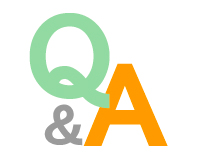
![]()
映画『The Englishman who climbed up a hill but came down a mountain (ウェールズの山)』に登場する山は、ウェールズ語で”ffynnon Garw” (フュノン・ガルウ) と言う名前でした。これはどのような意味なのでしょう。
![]()
”clear spring”(綺麗な泉)という意味です。おそらくこの山からは綺麗な水が湧き出ていて、それが名前の由来になっているのかもしれません。
”ffynnon”のようにffが二つ重なる綴りから始まる単語は英語に無いので戸惑うかもしれませんが、ウェールズ語で”f”が1つの場合は英語の”v”の発音になります。”f”の発音は”ff”と綴ります。
![]()
英語を学んでいる人でも、覚えておくと役に立ちそうなウェールズ語を教えてください。
![]()
では、まずは最初に覚えるべきとても基本的な表現を二つ。
bore da
(おはようございます)
”bore”は「朝」、”da”は「良い」という意味です。
diolch
(ありがとう)
簡単であっても、遥々日本から来た旅行者がこんな言葉でウェールズの人々に話しかけたら、とても喜ぶと思います。
[解説] ETCマンツーマン英会話 ジョナサン先生 (西武柳沢)
(※)関連リンク
▽ビデオでウェールズ語が基礎から学べます。(無料)
The Big Welsh Challenge
▽ウェールズ語っていったいどんな言葉?その興味深い特徴を日本語で学ぶことができます。
ウェールズ語は面白い
マンツーマン英会話ワンポイント・レッスン~”management-speak”の意味は?

![]()
“management-speak”の意味を教えてください。
![]()
直訳すると「経営者の言葉」。ビジネスの場で使われる独特の言い回しを指したものです。特に、マネージャなどが社員や部下をもっと働かせようとする時に使われる言い回しです。言葉や語句に通常とは異なった意味を持たせ、知らない人が聞くと奇妙に聞こえる場合もあります。
例えば、次のような言い回しです。
Let’s think outside the box!
(既成概念に囚われず、革新的なアイディアを出そう!)
(*)9 dots puzzle という正方形の外に線を引くことで解けるという一筆書きから。
blue sky thinking
(既成概念に囚われない考え、(否定的な意味で)根拠が無い、または現実感のない考え、価値の無い考え、無駄な考え)
上司からの厳しいプッシュに加え、このような言葉遣いを日常的に聞かされている部下達は、その言い回しの奇妙さも影響して、嫌悪感を覚える人が増えてきていると最近英米等で話題になっています。
(※)関連リンク ⇒ 50 office-speak phrases you love to hate
この様な言葉が無頓着に使われると、clicheと言って、言葉が本来の意味を失ってしまった決まり文句となり、言葉のエネルギーも失われ、陳腐化して行きます。management-speakが嫌われている理由は、このような部分にあるのかもしれません。
[解説] ETCマンツーマン英会話 ジョナサン先生(西武柳沢)
マンツーマン英会話ワンポイント・レッスン~“hangover”の意味は?

![]()
“hangover”の意味を教えてください。
![]()
よく「二日酔い」と意味で使われますが、「残存物」,「遺物」、「元々あった物が時間を経過した後も引き続き残った部分」という意味でも使われます。例えば次のような例です。
That shop is a hangover from the 70’s.
(あの店は70年代の面影をそのままに残している。)
That politician’s idea is a hangover from 17c.
(あの政治家の考え方は17世紀の遺物だ。)
二日酔いも、「前日のお酒が翌日に残ってしまったもの」という意味では、上記の例と同じですね。
[解説] ETCマンツーマン英会話 ジョナサン先生(西武柳沢)
マンツーマン英会話ワンポイント・レッスン~「キャパ」は英語で?

![]()
日本語で能力のことを「キャパ」、能力の限界を超えていることを「キャパオーバー」などと言うことがあります。英語では何と言うのでしょうか。
![]()
日本語で使われている「キャパ」は、英語では”capacity”。もともとは「収容能力」とか「容積/容量」などを表す言葉です。
That stadium’s capacity is 20,000.
(あのスタジアムは2万人収容できる。)
This pot’s capacity is 2l.
(このポットの容量は2リットルだ。)
同じように自分の頭のcapacity(収容能力)もありますね。例えば次のように使います。
My brother has a great capacity for languages.
(私の兄は言語を習得するのが上手い/言語に関して豊かな才能を持っている)
![]()
同じように、能力を表すフレーズで、”I am out of my depth”(私の能力を超えている/私の手には負えない状態だ)と言いますが、このmy depthは、my capacityと同じように使えるのでしょうか。
![]()
いいえ。例えば、my depth for language というような言い方はしません。これは、”out of my depth”という決まったフレーズで覚えておいた方が良いと思います。
[解説]ETCマンツーマン英会話 ジョナサン先生(西武柳沢)
マンツーマン英会話ワンポイント・レッスン~“a light bulb moment”の意味は?

![]()
“a light bulb moment”の意味を教えてください。
![]()
漫画やアニメなどで、何か良いアイディアなどが思いついた時に、人の頭の上で電球がぱっと点灯する絵が表れることがありますね。その瞬間のことを、“a light bulb moment”と言います。もしくは、ずっと思い出そうとしても、思い出せなかったことが、突然パッと記憶が甦った場合などにも使えると思います。
![]()
“It ring a bell”という表現がありますが、それと同じ意味ですか?
![]()
違います。“It ring a bell”は、「完璧に覚えている」という意味ではなく、例えば人の名前などの場合、「名前は聞いたことがあるんだけれど、いつどこで会ったんだっけ」というように、もっと曖昧で霞んでいる記憶が浮かび上がって来ているイメージです。
[解説]ETCマンツーマン英会話 ジョナサン先生(西武柳沢)
マンツーマン英会話ワンポイント・レッスン~“I’m aware of that”と“I know that”の意味の違いを教えてください。

![]()
“I’m quite aware of that”と“I know that”は、意味やニュアンスにどのような違いがあるのでしょうか。
![]()
I know thatは単に「それを知っている」という意味です。一方、“I’m quite aware of that”は「よく知っている」と言う意味ですが、「知らないはずがないじゃないか」、というニュアンスが含まれていると思います。
話の流れによっては、話し相手に対して「知らないとでも思っているのか」というような、相手を見下げたようなニュアンスが含まれる場合がありますので、使う際には注意が必要かもしれません。
[解説] ETCマンツーマン英会話 ジョナサン先生(西武柳沢)
マンツーマン英会話ワンポイント・レッスン~”damn and blast”の意味を教えてください。

![]()
映画『The Englishman Who Went Up a Hill But Came Down a Mountain』(ウェールズの山)で、ジョーンズ牧師が次のように言っていました。
”damn and blast”
あまり良い言葉ではないと思うのですが、牧師が使っていたので少し驚きました。
![]()
「くそお」、「ちくしょう」等という意味です。確かにあまりよい言葉ではありません。しかし、映画の中で牧師が使っていたように、それほど悪い言葉でもありません。牧師のような立場の人が使っても割と許される言葉使いかもしれません。
この場合、”damn” にも、”blast”にも「酷評」、「爆発」というような直接的な意味とは全く関係なく、”damn and blast”という音だけで使われている言葉だと思います。
また、いわゆるfour‐letter wordという汚い言葉遣いをできるだけ避けて、似たような音で言い換えようとする表現もあります。たとえば、S_xxxの言い換えとして、
shucks sugar
(ちぇっ!、くそ!、あーあ!、くだらん!)
F_xxxの言い換えして、
fiddlesticks
(ばかばかしい!)
など。”fiddlesticks”は、バイオリンの弓という意味ですが、それとは全く関連はなく、この場合も語の音だけで使われています。
[解説]ETCマンツーマン英会話 ジョナサン先生(西武柳沢)
マンツーマン英会話ワンポイント・レッスン~”When it rains, it pours.”の意味を教えてください。

![]()
“When it rains, it pours.”の意味を教えてください。
![]()
「降れば、いつもどしゃぶり」。日本語で言うと「踏んだり蹴ったり」とか「泣きっ面に蜂」。1つ悪いことが起こったら、しばしば、もう1つ悪いことが起こる。悪いことが立て続けに起こることを言います。例えば、次のような使い方をします。
I forgot my umbrella today.
And I got very wet.
And then I fell over coming out the station.
When it rains, it pours.
(今日私は傘を忘れて、ずぶ濡れになってしまいました。
さらに駅を出たところで転んでしまいました。
踏んだり蹴ったりです。)
同じような意味で、次のような言い方もあります。
A bad thing coming in threes.
It never rains but it pours.
[解説]ETCマンツーマン英会話 ジョナサン先生(西武柳沢)
“Don’t cross me.”の意味は


天才詐欺師のニールはFBI捜査官ピーターに捕まってしまいます。しかし、制限付きではありますが自由を得るために、ニールはFBIのホワイトカラークライム、知的犯罪捜査のコンサルタントとして協力することになります。
今日はこんなダイアログから。
Elizabeth:
You know, if she’s smart, she’s not going to have that bible anywhere close to her.
Peter:
El, I’ve never seen this devious side.
Elizabeth:
Don’t cross me.
さて、“Don’t cross me.”とはどのような意味なのでしょうか。
“Don’t cross me.”
When you cross somebody, you are making them angry.
So for example, we draw a line in the ground, and say “don’t cross this line” when we were children.
“You cross this line, it’s fighting time”.
And two countries have the same thing.
We have a border, the border between China and Japan.
But China comes across the line, across the border.
They cross it, then it’s fighting time.
Don’t push me too much.
Don’t cross me.
Don’t make me angry would be the meaning of it.
Don’t cross me. Don’t make me angry.
“He is cross”, “He is angry”.
Don’t cross me. Don’t make me angry.
“He is cross”, “he crossed her”, “don’t cross me”.
border
国境(線)
comes across
.…を横切る.
■聞き手
・青樹洋文
◆使用楽曲 (BGM)
“Movie Star * (The Making Of X) by Loveshadow
◆ポッドキャストのダウンロードや購読は、iTunes – Podcast – 「RadioETC」からも可能です。
マンツーマン英会話ワンポイント・レッスン~”I would be wasting my breath”の意味を教えてください。

![]()
“I would be wasting my breath”の意味を教えてください。
![]()
「話しても意味が無いだろう」、「言っても無駄だろう」という意味です。
例えば、あなたが上司に給料の値上げを交渉しようとしています。しかし、上司の性格から言って、まともに取り合ってくれるとは思いません。話を聞いてくれさえもしないかもしれません。上司にとっては聞く理由が無いし、給料をアップする根拠もないからです。つまり交渉しても良い結果は期待できそうにもありません。
さて、話すときには呼吸をします。でも、このような話は呼吸を無駄にしているのと同じ、だから”wasting my breath“です。
[解説]ETCマンツマン英会話 ジョナサン先生(西武柳沢)
マンツーマン英会話ワンポイント・レッスン~”a pint of bitter”と”a glass of beer”の違いを教えてください

![]()
映画『ウェールズの山』のバーでビールを注文するシーンです。次の異なる二つの表現がありました。
■シーン1
Morgan the Goat:
What’s yours?
Reginald Anson:
I’ll have a pint of bitter, thank you.
■シーン2
Reginald Anson:
Sorry. Could l possibly have a glass of beer ?
Elizabeth aka Betty:
Do l look like a barmaid ?
“a pint of bitter”も”a glass of beer”も ビールを表していると思うのですが、意味やニュアンスに違いはあるのでしょうか。
![]()
まず”a pint of bitter”について。
“bitter”はビールの中でもホップの効いたかなり苦いビールのことです。
“a pint”は、液量の単位で568mlを表します。
英国ではビールをこのpint(パイント)の単位で注文します。
”a pint of bitter”と”a glass of beer”の違いですが、前者ははかなりくだけた表現であるのに対して、後者”はより固めの表現です。
また、”bitter”はビールの中でも特定の種類を言い表しているのに対して、 “a glass of beer”と言うと、lager(ラガー)なのかもしれないし、dark beer(黒ビール)なのかもしれないし, bitter(ビター)なのかもしれません。また、この言い方はposhな(気取った)表現ではないかとも思います。
注目しては欲しいのは、シーン1のバーテンダー Morgan The Goatの質問、
“What’s yours?”
という表現です。これ自体くだけた表現なので、聞かれたReginald Ansonもくだけた表現で、”a pint of bitter”と応えているのです。バーテンダーと客という関係性がすでに成立した上で交わされた会話です。
通常、バーテンダーが注文を聞く際によく使われる表現は、
“What would like to drink?”
また、バーで飲むのは当たり前なので、drinkを省いて
“What will you have?”
などと言います。”What’s yours?”はこれらに比べるとよりくだけたより表現になっています。
一方、シーン2では、Reginald AnsonとElizabeth aka Bettyは初対面ですので、丁寧な言い方をしたのだと思います。実際のところ、Elizabethはバーテンダーではありませんでした。
[解説] ETCマンツーマン英会話 ジョナサン先生(西武柳沢)
“if I stretch it”の意味は

 アメリカの人気テレビドラマ『ホワイトカラー』を観ながらETC英会話のフレッド先生のレッスンを受けています。
アメリカの人気テレビドラマ『ホワイトカラー』を観ながらETC英会話のフレッド先生のレッスンを受けています。
天才詐欺師のニールはFBI捜査官ピーターに捕まってしまいます。しかし、制限付きではありますが自由を得るために、ニールはFBIのホワイトカラークライム、知的犯罪捜査のコンサルタントとして協力することになります。
今日はこんなダイアログから。
Neal:
Well, how do we get Maria to reveal hers?
Peter:
If I stretch it, I might be able to get a warrant to get into her place.
さて、“if I stretch it”とはどのような意味なのでしょうか。
So “if I stretch it” means “if I lie a little bit”, “I don’t tell the truth”, or sometimes we say “white lie”.
It’s not wrong, but it’s real truth.
You kind of stretch it a little bit.
Sometimes if you catch a fish, the fish is only maybe 10 cm long.
But you can stretch it, “wow, this big like 30 cm”.
You stretch it.
It’s not 30 cm. It’s only 10 cm, right.
That’s stretching the truth.
It is not a lie, but it’s not 100 % true.
So if I stretch, you could also say, if I rework it, if I do it in a different way, if I don’t give them all the information, stretch it back, pull it back.
Or if I make it sound better than it really is, I am stretching it.
white lie
罪のないうそ.
stretch
〈…を〉無理に解釈する; 乱用[悪用]する; 誇張する.
番組情報
■聞き手
・青樹洋文
◆使用楽曲 (BGM)
“Movie Star * (The Making Of X) by Loveshadow
◆ポッドキャストのダウンロードや購読は、iTunes – Podcast – 「RadioETC」からも可能です。
“help us out”の意味は

 アメリカの人気テレビドラマ『ホワイトカラー』を観ながらETC英会話のフレッド先生のレッスンを受けています。
アメリカの人気テレビドラマ『ホワイトカラー』を観ながらETC英会話のフレッド先生のレッスンを受けています。
天才詐欺師のニールはFBI捜査官ピーターに捕まってしまいます。しかし、制限付きではありますが自由を得るために、ニールはFBIのホワイトカラークライム、知的犯罪捜査のコンサルタントとして協力することになります。
今日はこんなダイアログから。
Maria:
You gentlemen are with the FBI?
Peter:
Yes. We’re hoping you could help us out on this one. We’re working on a stolen bible.
さて、“help us out”とはどのような意味なのでしょうか。
Nothing, except “help us out” would be “help us out of this situation”.
“Help us get out of this situation”.
So if you ask me a question, and I don’t know the answer, so I need a hint.
So I say then “can you give me a hint?”, I might say “can you help me out of here”, “could you give me a kind of a little hint about what I should say?”.
help out
(困った時に)〈人の〉〔…を〕助けてやる
〈人を〉手伝って(~から)出してやる
■聞き手
・青樹洋文
◆使用楽曲 (BGM)
“Movie Star * (The Making Of X) by Loveshadow
◆ポッドキャストのダウンロードや購読は、iTunes – Podcast – 「RadioETC」からも可能です。
“get dirt under your nails”の意味は

“get dirt under your nails”の意味は
 アメリカの人気テレビドラマ『ホワイトカラー』を観ながらETC英会話のフレッド先生のレッスンを受けています。
アメリカの人気テレビドラマ『ホワイトカラー』を観ながらETC英会話のフレッド先生のレッスンを受けています。
天才詐欺師のニールはFBI捜査官ピーターに捕まってしまいます。しかし、制限付きではありますが自由を得るために、ニールはFBIのホワイトカラークライム、知的犯罪捜査のコンサルタントとして協力することになります。
今日はこんなダイアログから。
Peter:
What’d you find?
Neal:
A professor who writes about the black market. Sicilian grave robbers, Egyptian smugglers, and Siberian mobsters. I mean, you can’t run with those crowds unless you’re willing to get dirt under your nails.
Peter:
What’s his name?
Neal:
Her name is Maria Fiametta.
さて、“get dirt under your nails”とはどのような意味なのでしょうか。
Well, if you go out working and no gloves, you are going to get dirt under your fingernails, right.
So, what it means in this case, is that the people, you are working with, are dirty, dirty people.
They are smugglers, mobsters, robbers.
So being associated with them, working with them, you are going to get dirty yourself.
So you will be doing bad things also.
So you are going to get dirt under your fingernails.
You are going to become dirty.
And if you have ever worked in the garden, bare handed, it is difficult to get the dirt out.
Once the dirt gets in, it’s difficult to get it out.
So the bad thing is you do with this mobsters and gangsters, you can not cut that association.
You are still connected.
You are going to get dirty.
“You are going to do bad things.”
“Being associated with them, is not good. Things are going to get difficult for you.”
robber
泥棒,強盗
smuggler
密輸業者.
mobster
暴力団の一員[一味]
get dirt
汚れる
■聞き手
・青樹洋文
◆使用楽曲 (BGM)
“Movie Star * (The Making Of X) by Loveshadow
◆ポッドキャストのダウンロードや購読は、iTunes – Podcast – 「RadioETC」からも可能です。
“Serendipity”の意味は

 アメリカの人気テレビドラマ『ホワイトカラー』を観ながらETC英会話のフレッド先生のレッスンを受けています。
アメリカの人気テレビドラマ『ホワイトカラー』を観ながらETC英会話のフレッド先生のレッスンを受けています。
天才詐欺師のニールはFBI捜査官ピーターに捕まってしまいます。しかし、制限付きではありますが自由を得るために、ニールはFBIのホワイトカラークライム、知的犯罪捜査のコンサルタントとして協力することになります。
今日はこんなダイアログから。
Neal:
You know the name Maria Fiametta?
Mozzie:
Doesn’t ring a bell. Who is she?
Neal:
Art historian, Brooklyn State.
Mozzie:
Serendipity. Paul had an appointment at Brooklyn State.
さて、“Serendipity”とはどのような意味なのでしょうか。
Serendipity is when something, a kind of unexpected but good thing happens, or in this case, Maria, art historian at Brooklyn State and Paul had an appointment at Brooklyn State.
So the two have the possibility of the meeting.
It is a kind good chance, lucky, serendipity. It’s a happy situation.
This is a kind of uncommon word.
And most people would just say “wow”, or young people nowadays might even say “cool”.
This is not a common word.
Mozzie’s vocabulary is very unusual.
It’s not common.
That’s why his character in the movie, he is an unusual person.
And so using a language like this makes him seem more unusual, and more interesting in that way. That’s way I like listening to him to talk. It’s not common, but it’s intriguing.
Intrigue. The way he talks makes me want to listen to him to talk.
It’s not normal, so.
He does speak a little bit strange.
But with the way he speaks, you can tells he is very intelligent person.
Normal person couldn’t throw out these words with the way he does.
He uses his knowledge and his knowledge words as well.
But, he shows that he is very intelligent person.
common
社会一般の
serendipity
思わぬものを偶然に発見する才能[能力].
intrigue
〈人の〉好奇心[興味]をそそる
■聞き手
・青樹洋文
◆使用楽曲 (BGM)
“Movie Star * (The Making Of X) by Loveshadow
◆ポッドキャストのダウンロードや購読は、iTunes – Podcast – 「RadioETC」からも可能です。
“It doesn’t ring a bell “の意味は

 アメリカの人気テレビドラマ『ホワイトカラー』を観ながらETC英会話のフレッド先生のレッスンを受けています。
アメリカの人気テレビドラマ『ホワイトカラー』を観ながらETC英会話のフレッド先生のレッスンを受けています。
天才詐欺師のニールはFBI捜査官ピーターに捕まってしまいます。しかし、制限付きではありますが自由を得るために、ニールはFBIのホワイトカラークライム、知的犯罪捜査のコンサルタントとして協力することになります。
今日はこんなダイアログから。
Neal:
You know the name Maria Fiametta?
Mozzie:
Doesn’t ring a bell. Who is she?
Neal:
Art historian, Brooklyn State.
Mozzie:
Serendipity. Paul had an appointment at Brooklyn State.
さて、“It doesn’t ring a bell”とはどのような意味なのでしょうか。
In English, when we say “ring a bell”, inside our head, we get an idea or we understand something, “bing”, the bell rings in our head.
We understand it.
So “the name, Maria doesn’t ring a bell” means “I haven’t heard it before”, “I don’t recall hearing that name”, “I don’t remember that name”, “It doesn’t ring a bell ”, “I don’t understand that name”.
Yes, this is very common phrase, “doesn’t ring a bell”.
recall
思い出す
ring a bell
以前に聞いたことがある; 思い出させる.
■聞き手
・青樹洋文
◆使用楽曲 (BGM)
“Movie Star * (The Making Of X) by Loveshadow
◆ポッドキャストのダウンロードや購読は、iTunes – Podcast – 「RadioETC」からも可能です。
“She is fading”の意味は

 アメリカの人気テレビドラマ『ホワイトカラー』を観ながらETC英会話のフレッド先生のレッスンを受けています。
アメリカの人気テレビドラマ『ホワイトカラー』を観ながらETC英会話のフレッド先生のレッスンを受けています。
天才詐欺師のニールはFBI捜査官ピーターに捕まってしまいます。しかし、制限付きではありますが自由を得るために、ニールはFBIのホワイトカラークライム、知的犯罪捜査のコンサルタントとして協力することになります。
今日はこんなダイアログから。
Peter:
Steve, if we showed you some pictures, do you think you could recognize him?
Steve:
We just need to get the bible back, okay? ‘Cause she’s fading, all right?
さて、“She is fading”とはどのような意味なのでしょうか。
In this case, if the person is sick and in the hospital, and they are dying little by little, their life is fading away.
So we have to get the information before they die.
Another example for “she is fading” is she is out there, but we can’t find her, and the longer we can’t find her, the more we will not be able to find her.
So we never be able to see her again.
She is fading, so two meanings here.
So if a person is sick, for example, my mother is sick in the hospital, and she is fading.
She is dying. So she is fading.
Another one is you imagine somebody is running away, where they get smaller and smaller and smaller like a camera, you fade away, well they are disappearing.
You won’t be able to see them any more.
“Fading” is again the slang word.
“She is getting weak” is a regular terminology.
fade
1)(若さ・新鮮さ・美しさ・強さなどが)衰える.
2)〈色・光・音などが〉〔…から〕次第に消えて[薄れて]いく
regular terminology
正式な用語
■聞き手
・青樹洋文
◆使用楽曲 (BGM)
“Movie Star * (The Making Of X) by Loveshadow
◆ポッドキャストのダウンロードや購読は、iTunes – Podcast – 「RadioETC」からも可能です。
“Smash and dash”の意味は


アメリカの人気テレビドラマ『ホワイトカラー』を観ながらETC英会話のフレッド先生のレッスンを受けています。
天才詐欺師のニールはFBI捜査官ピーターに捕まってしまいます。しかし、制限付きではありますが自由を得るために、ニールはFBIのホワイトカラークライム、知的犯罪捜査のコンサルタントとして協力することになります。
今日はこんなダイアログから。
Cruz: No alarm, no witnesses, no sign of a forced entry. It looks like a smash and dash.
さて、“smash and dash”とはどのような意味なのでしょうか。
“Smash and dash” is used for a robbery situation.
We smash the window, take something, and run away.
“Dash” means to run away.
But quite often, “hit and run” is common.
So instead of “smash and dash”, you can say “hit and run”.
But in this case, there is no alarm, no witnesses, and no sign of a forced entry, so somebody knew this person.
So they came in, they were invited into the house, no forced entry.
Nobody saw anything. It’s very quite. Nobody trip the alarm.
So the alarm was off. So they hit the person and then run away.
They attacked and ran away, then “smash and dash”.
The use of “smash dash” is “you smash the store window, you take something and run away”.
“Smash and dash”.
robbery 泥棒,強盗,強奪
smash (強い力で粉々に)打ち壊す,割る
dash 突進する,急行する.
forced entry 突然、無断で入り込むこと
run away 逃げる
■聞き手
・青樹洋文
◆使用楽曲 (BGM)
“Movie Star * (The Making Of X) by Loveshadow
◆ポッドキャストのダウンロードや購読は、iTunes – Podcast – 「RadioETC」からも可能です。
“we have a situation”の意味は

 アメリカの人気テレビドラマ『ホワイトカラー』を観ながらETC英会話のフレッド先生のレッスンを受けています。
アメリカの人気テレビドラマ『ホワイトカラー』を観ながらETC英会話のフレッド先生のレッスンを受けています。
天才詐欺師のニールはFBI捜査官ピーターに捕まってしまいます。しかし、制限付きではありますが自由を得るために、ニールはFBIのホワイトカラークライム、知的犯罪捜査のコンサルタントとして協力することになります。
今日はこんなダイアログから。
Jones:
Morning, sunshines. Coffee? What we got? We got any headlines?
Cruz:
Uh, not much. Although they keep bitching about his bible?
Jones:
Could be a debt ledger.
Cruz:
Well, whatever it is, it’s missing and they ain’t happy about it.
Agent:
Hey, guys, we have a situation.
Cruz:
Is that Barelli? What’s he doing down here?
さて、“we have a situation”とはどのような意味なのでしょうか。
So “we have a situation” means “we have a problem”, “something is wrong”, “it is a difficult situation”.
So “we have a situation”, “we have to take care of this”.
Instead of “a situation”, you can say “we have a problem”, “we have some trouble”, “something is wrong”, different ways to say that.
And also, for example in a sentence,
“we have a situation at the head office.
The boss and the manager are arguing, and having a big fight. So it is really a big situation.
Everybody has stopped working.
We have a situation there”.
Another situation is a man with a knife is on a train platform.
So one policeman says to other policemen,
“we have a situation”.
situation 重大な局面、問題を含む状態、特筆すべき状態
■聞き手
・青樹洋文
◆使用楽曲 (BGM)
“Movie Star * (The Making Of X) by Loveshadow
◆ポッドキャストのダウンロードや購読は、iTunes – Podcast – 「RadioETC」からも可能です。
マンツーマン英会話ワンポイント・レッスン~”Don’t be fooled by that”の意味を教えてください。

![]()
“Don’t be fooled by that.”とはどのような意味なのでしょうか。
![]()
「そのことに騙されてはいけない」、とう意味です。
次のような表現に置き換えることができます。
Don’t be deceived by that.
Don’t be kidded by that.
Don’t be misled by that comment.
“Kidded” は、おそらくスラング的な表現だと思います。
【解説】ETCマンツーマン英会話 チャールズ先生(横浜・大坂上)
マンツーマン英会話ワンポイント・レッスン~”hang out”の意味を教えてください。

![]()
“hang out“とはどのような意味なのでしょうか。
![]()
”hang out“とは、「パブやカフェのようなある場所へよく集う、頻繁に集まる」という意味です。
お気に入りのパブ、喫茶店、または居酒屋があったとしましょう。友人と会って、お喋りをしたり、リラックスして楽しんだりするために、その場所に頻繁に出入りすることを意味します。例えば次のように使います。
I used to hang out at the Yokohama tavern where I meet many boating friends.
(ボート仲間と会うために、私は横浜のバーによく出入りしていたものだ)
【解説】ETCマンツーマン英会話 チャールズ先生(横浜・大坂上)
マンツーマン英会話ワンポイント・レッスン~”sound familiar”の意味を教えてください。

![]()
“Does this story sound familiar to you?”とはどのような意味なのでしょうか。
![]()
“sound familiar”は、「聞き覚えがある」という意味です。例えば次のような表現に置き換えることができます。
“Does this kind of story sound familiar to you?”
↓
“Have you hear this kind of story before”.
(このような話を以前に聞いたことがありますか?)
“Doesn’t it sound familiar?”
↓
“Isn’t it a commonplace story?”
(それはよく聞く話ではありませんか?)
“We got any headlines?”の意味は

 アメリカの人気テレビドラマ『ホワイトカラー』を観ながらETC英会話のフレッド先生のレッスンを受けています。
アメリカの人気テレビドラマ『ホワイトカラー』を観ながらETC英会話のフレッド先生のレッスンを受けています。
天才詐欺師のニールはFBI捜査官ピーターに捕まってしまいます。しかし、制限付きではありますが自由を得るために、ニールはFBIのホワイトカラークライム、知的犯罪捜査のコンサルタントとして協力することになります。
今日はこんなダイアログから。
Jones:
Morning, sunshines. Coffee? What we got? We got any headlines?
Cruz:
Uh, not much. Although they keep bitching about his bible?
Jones:
Could be a debt ledger.
Cruz:
Well, whatever it is, it’s missing and they ain’t happy about it.
Agent:
Hey, guys, we have a situation.
Cruz:
Is that Barelli? What’s he doing down here?
さて、“We got any headlines?”とはどのような意味なのでしょうか。
“We got any headlines?” So, “do we have any headlines?” means “do we have any news?”, like in a newspaper we have headlines.
So, “do we have news about what’s going on?”.
So, “do we have any headlines?”
Instead of saying “we got any headlines?”, you could say “is there news?”, “anything new?”.
Or even very casual, you could say “what’s happening?”, “what’s going on?”, “we got any news?”, “are there any headlines?”.
“We got any any headlines?”, first of all, is not common.
But “I just got back. I just got back from New York. We got any headlines? Is there any more information? Anything new? Give me some headlines.”
headlines (新聞記事などの)見出し.
■聞き手
・青樹洋文
◆使用楽曲 (BGM)
“Movie Star * (The Making Of X) by Loveshadow
◆ポッドキャストのダウンロードや購読は、iTunes – Podcast – 「RadioETC」からも可能です。
「ゆとりある生活を送りたい」は英語で

 「英語に訳せそうで訳せない日本語というテーマでETC英会話のナオミ先生(荻窪)のレッスンを受けています。
「英語に訳せそうで訳せない日本語というテーマでETC英会話のナオミ先生(荻窪)のレッスンを受けています。
今日の日本語は
「ゆとりある生活を送りたい」
これを英訳してみました。ナオミ先生の解説です。
I knew the word “ゆとり”, but I didn’t think they will use it like “ゆとり教育”.
I didn’t know you use it in that way.
Q “ゆとり教育”って言葉ありましたね。
Yes, which means Saturdays and Sundays, children don’t go to school.
“ゆとり教育” So I could understand it, but I was a kind of thinking why it is “ゆとり教育”.
It’s like a title.
So to me, it sounds like a new word.
I knew the word, but the way they use it now is quite different from what I know.
So you say “ゆとりある生活”, that’s true.
So you said “I would like to have a wealthy and peaceful life”.
You would also have to say like “healthy”.
And you would have to say all the good things.
So I thought maybe “I would like to have a favorable life”.
Something like “favorable”, which means maybe you have money, you have nice job, maybe, you have nice children.
You have everything, favorable things.
I thought “I would like to live a favorable life” or “I would like to live an advantageous life” is what I thought.
I also thought “livelihood”.
It said “生活”, it says, I thought “life” would be better.
So number one maybe “a favorable life”, number two an “advantageous life”, ideal.
It’s ideal, something you are have been to wishing for.
Q “ゆとり教育” はどういうふうに訳しますか
When I hear it in Japanese,,,
But if I have to say that in English, it means maybe you have more things to do, you have more time to do something for yourself.
Maybe there is no one word for that.
favorable 順調な
advantageous 有利な
■聞き手
・青樹洋文
◆使用楽曲 (BGM)
“Movie Star * (The Making Of X) by Loveshadow
◆ポッドキャストのダウンロードや購読は、iTunes – Podcast – 「RadioETC」からも可能です。
「細かいことにこだわるな」は英語で

 「英語に訳せそうで訳せない日本語というテーマでETC英会話のナオミ先生(荻窪)のレッスンを受けています。
「英語に訳せそうで訳せない日本語というテーマでETC英会話のナオミ先生(荻窪)のレッスンを受けています。
今日の日本語は
「こまかいことにこだわるな」
これを英訳してみました。ナオミ先生の解説です。
I just thought maybe “こまいこと” is a little difficult to say what like “in details”.
So I said “do not take things so seriously” or “too seriously”.
Or for example, like “do not worry too much over trivial matters”.
“Trivial” means some small incidents, small situations.
Something like, the other people think “why are you so worried about such a really unimportant thing” like would be “trivial”, I think.
So another one is “do not overly care (or worry) about trivial matters”, or “unimportant matters” can be also another one too.
So for this person it’s really important, but for the other people it’s unimportant.
I was thinking in that way.
trivial ささいな、つまらない、他の人にとってはさほど重要ではない事柄
■聞き手
・青樹洋文
◆使用楽曲 (BGM)
“Movie Star * (The Making Of X) by Loveshadow
◆ポッドキャストのダウンロードや購読は、iTunes – Podcast – 「RadioETC」からも可能です。
マンツーマン英会話ワンポイント・レッスン~“let the dust settle”の意味を教えてください。

![]()
“let the dust settle”とはどのような意味なのでしょうか。
![]()
部屋をほうきで掃いたり、大きな家具を移動したりすると、空中に埃が舞い上がります。そのままの状態で部屋にいると、埃を吸い込んでしまって身体には良くありません。舞い上がった埃がいったん落ち着くまで、いったん外に出て少し待ったほうがよさそうです。舞い上がった埃を落ち着かせる。これが、“let the dust settle”の元々の意味ですが、これを比喩的に使っています。
「あることで激しい議論があったため、いったん距離を置いて、状況が落ち着くまで待つ」、「事態を沈静化させる」という意味で使われます。
たとえば、昨晩バーで酔ってちょっとしたトラブルを起こしてしまいました。しかし、今晩もそのバーに行こうとしたところ、友人からこうアドバイスされました。
“No, no, no. You should let the dust settle before you go back again”.
(だめ、だめ、だめ。またあの店に行く前に、状況を落ち着かせたほうがいい)
【解説:ETCマンツーマン英会話 トニー先生(荻窪/富士見ヶ丘)】
マンツーマン英会話ワンポイント・レッスン~“Stone the crows!”の意味を教えてください。

![]()
“Stone the crows!”とはどのような意味なのでしょうか。
![]()
コックニーやオーストラリアの人々の間で使われる表現です。そのままの意味は「石を拾ってからすに向かって投げつける」。
「うわぁ、驚いた」、“I can’t believe it”(信じられない)、“what?”(何だって?)と言う様な驚きを表す表現として使われます。
【解説:ETCマンツーマン英会話 トニー先生(荻窪/富士見ヶ丘)】
マンツーマン英会話ワンポイント・レッスン~”hang on”の意味を教えてください。

![]()
テレビドラマ『Sherlock』に次のような会話がありました。
JOHN: Jennifer Wilson. That was… Hang on! Wasn’t that the dead woman?
SHERLOCK: Yes, that’s not important. Just enter the number. Are you doing it?
JOHN: Yes.
SHERLOCK: Have you done it?
JOHN: Yeah, hang on!
この”hang on“の意味を教えてください。
![]()
もともとの意味は「しがみつく」。そこからが発展して、「人が木の枝にしがみついて、今にも落ちそう。今、クッションもって下に行くから。それまで落ちないで。頑張ってしがみついていて。ちょっと待ってて。」、“Wait! Don’t go anywhere!”(待って!そこでじっとしていて)という意味で使われます。
”hang on“は、通常短い時間を待たせる場合に使います。“wait a moment!”と同じ意味です。
“Hang on for a while!”
(ちょっと待って)
“Hang on! I am just about to do it.”
(待って。今ってちょうどやっているところだから。)
とてもくだけた表現ですので、日常生活で使うのであれば問題はありませんが、ビジネス・ミーティング等で使う言葉としては適していないと思います。
また、このonをaroundに置き換えて“hang around”とすると、より長い時間を意味することになります。
“Hang around for 2 hours!”
(2時間待って。2時間ぶらぶらして時間をつぶしていて)
【解説:ETCマンツーマン英会話 トニー先生(荻窪/富士見ヶ丘)】
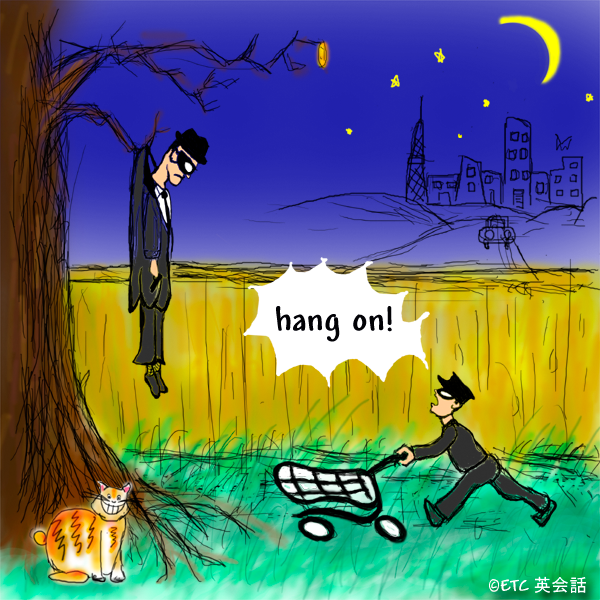
マンツーマン英会話ワンポイント・レッスン~ “could”、“would”、“should”、”might”の違いを教えてください。

![]()
「~かもしれない」と言う様な意味で、“could”、“would”、“should”、”might”を使う場合に、その使い分け方、意味やニュアンスの違いを教えてください。
![]()
たとえば、「私はもっと上手いギタリストになれるかもしれない」を英語で言う際に、“could”、“would”、そして“should”を使う場合、ある条件を加えることで、その用法の違いがよりはっきりしてくると思います。
” I could be a better guitarist, if I practice more.”
(もっと練習をすれば、私はより上手いギタリストになることができるかもしれない)
つまり、このcouldは将来に置ける可能性を言い含んでいます。
”I would be a better guitarist, if I practice more.”
(もっと練習をすれば、私はより上手いギタリストになるだろう)
このwouldは、未来に関する推測、推量が含まれています。couldとwouldはどちらでもほぼ同じ意味合いで使うことができます。
一方、shouldを使うと、「本来既にそうあるべきだが、何らかの理由で実際はそうはなっていない」というニュアンスが含まれることになります。
“I should be a good guitarist (but I am not), because I practice everyday”.
(毎日練習をしているので、私は上手いギタリストであるはずだ。(だが実際は上手くない。))
この意味合いを表現するのに、could や would で置き換えることはできません。
mightには、“could”、“would”、“should”が表現していたニュアンスはなく、単に「~かもしれない」という一般的な意味合いになります。
“I might be a good guitarist”
(私は上手いギタリストかもしれない。(そうでないかもしれない))
![]()
mightが一番不確かで、自信無く聞こえました。
![]()
その通りですね。mightが一番一般的。ですから、「将来における可能性」も「未来に対する推測、推量」も伝わりません。
たとえば、次のような状況でmightを使ってしまうと、相手を混乱させ、迷惑をかけてしまうことになるかもしれません。
“Are you coming round tonight?”
(今晩は遊びに来るの?)
“I might.”
(行くかも)
“Are you or aren’t you?”, “yes or no?”.
(来るの?来ないの?どっち?)
“Well, I might.”
(そうだなあ、行くかもしれない)
“Well, are you? Because If you are, I am going to prepare things.
If you are not, then I am not going to prepare things”.
(もし来るのなら、いろいろと準備をしておくし、来ない のなら、準備しないんだから)
“Oh, I might.”
(そうなんだ、じゃあ行くかも)
とても迷惑な答え方で、お相手もいらいらしていますね。
マンツーマン英会話ワンポイント・レッスン~”could”と “might”の違いを教えてください。

![]()
テレビドラマ『Sherlock』に次のような会話がありました。
(シャーロックホームズとの付き合いを続けるつもりなのか?)
JOHN: I could be wrong, but I think that’s none of your business.
(私は間違っているかもしれない。でも、あなたには関係のないことだと思うが?)
謎の男: It could be.
(あるかも)
この”It could be.の意味を教えてください。
また、これを” It might be.“に置き換えると、ニュアンスや意味にどのような違いが生じるのでしょうか。
![]()
謎の男が「あるかも」(It could be)と答えているその背景には、「もし、あなたがある事実を知ることになれば、私にも関係があることになるかも」というニュアンスが隠れています。ドラマの最後で明かされますが、謎の男はシャーロックホームズのお兄さんでしたね。
”could”と “might”は基本的には同じ意味で使われますが、“could”は、ある状況が変化することで、 より可能性が高まる場合に使われます。
次の例文で考えてみましょう。今晩、私が料理を作ることになりました。美味しく作ることができるでしょうか?
(今晩は僕が料理を作るよ)
”Is dinner going to be delicious?”
(美味しい晩御飯になるかな?)
”Well, it could be, if I got right ingredients.“
(なるかも。ちゃんとした食材が揃えばだけど)
この場合は、「僕」はもともと料理が得意で、「必要な食材さえ揃えば、美味しい料理が作れる可能性が高まる」、という状況が it could beで表現されています。
一方、might を使うと、次の様に変化します。
(今晩は僕が料理を作るよ)
”Is dinner going to be delicious?”
(美味しい晩御飯になるかな?)
”Well, it might be.“
(なるかも。)
この場合は、「僕」はあまり料理は得意ではありません。ですから、料理の結果も、ちゃんとした食材の有る無しもあまり関係ありません。晩御飯が美味しくなるか、どうかはその時の運次第、といったニュアンスです。”it might be”.と言うことで、美味しい料理が出来上がる可能性は、”it could be “と答えた場合よりも、可能性は非常に低くなっています。
マンツーマン英会話ワンポイント・レッスン~”be out of one’s depth”の意味を教えてください。

![]()
テレビドラマ『Sherlock』に次のような会話がありました。
I’m a consulting detective. Only one in the world. I invented the job.
JOHN:
What does that mean?
SHERLOCK:
It means when the police are out of their depth, which is always, they consult me.
この、the police are out of their depthの意味を教えてください。
![]()
文字通りの意味は、プールや海などの水中で、水深がすでにその人の背丈を超えてしまっていて、水底に足が着かない状態のこと。しっかりと泳げなければ溺れてしまうかもしれない危険な状態です。
しかし、実際は比喩的に使われることが多く、「手に負えない状態になっていること」、「その人の能力を超えてしまっていて、誰かの助けを必要としている状態」を表します。
質問の会話では、「いつものように事件が難解で、警察の能力では解決の糸口が見つけられず、お手上げの状態になると、シャーロック・ホームズに相談をしてくる」という意味で使われています。
【解説:ETCマンツーマン英会話 トニー先生(荻窪/富士見ヶ丘)】

マンツーマン英会話ワンポイント・レッスン~”off out”の意味を教えてください。

![]()
テレビドラマ『Sherlock』に次のような会話がありました。
MRS HUDSON: Both of you?
この、Off outの意味を教えてください。
![]()
“I am off out”を短縮した形で、 この場面では“I am going out”(私は出かけます)という意味です。
I am off out for a little bit
I am off out for a little while.
などと使われることが多く、比較的短い間の外出を意味します。outを省略して、
I’m off.
と言うこともできます。
ただし、このI’m off.は他にもいろいろな意味で使われます。たとえば、
I’m off a carrot.
と言うと、” I don’t like a carrot.” (私は人参が好きではない)、” I don’t like to eat carrots any more.” (もう人参は食べたなくない)と言う意味になります。
また、“I’m off today”で、「今日は休みです」という意味にもなります。
さらに、
I am feeling a little off.
で、「ちょっと気分が優れない」という意味になります。
I’m off today.
これは、“I’m off myself today”を短縮した形で、「今日はいつもの自分ではない」、「今日はいつもの調子ではない」とうい意味になります。
I’m off. と言う簡単な表現ですが、いろいろな使われ方があります。その時の会話の流れ、その場の状況によって判断をしてみてください。
【解説:ETCマンツーマン英会話 トニー先生(荻窪/富士見ヶ丘)】













